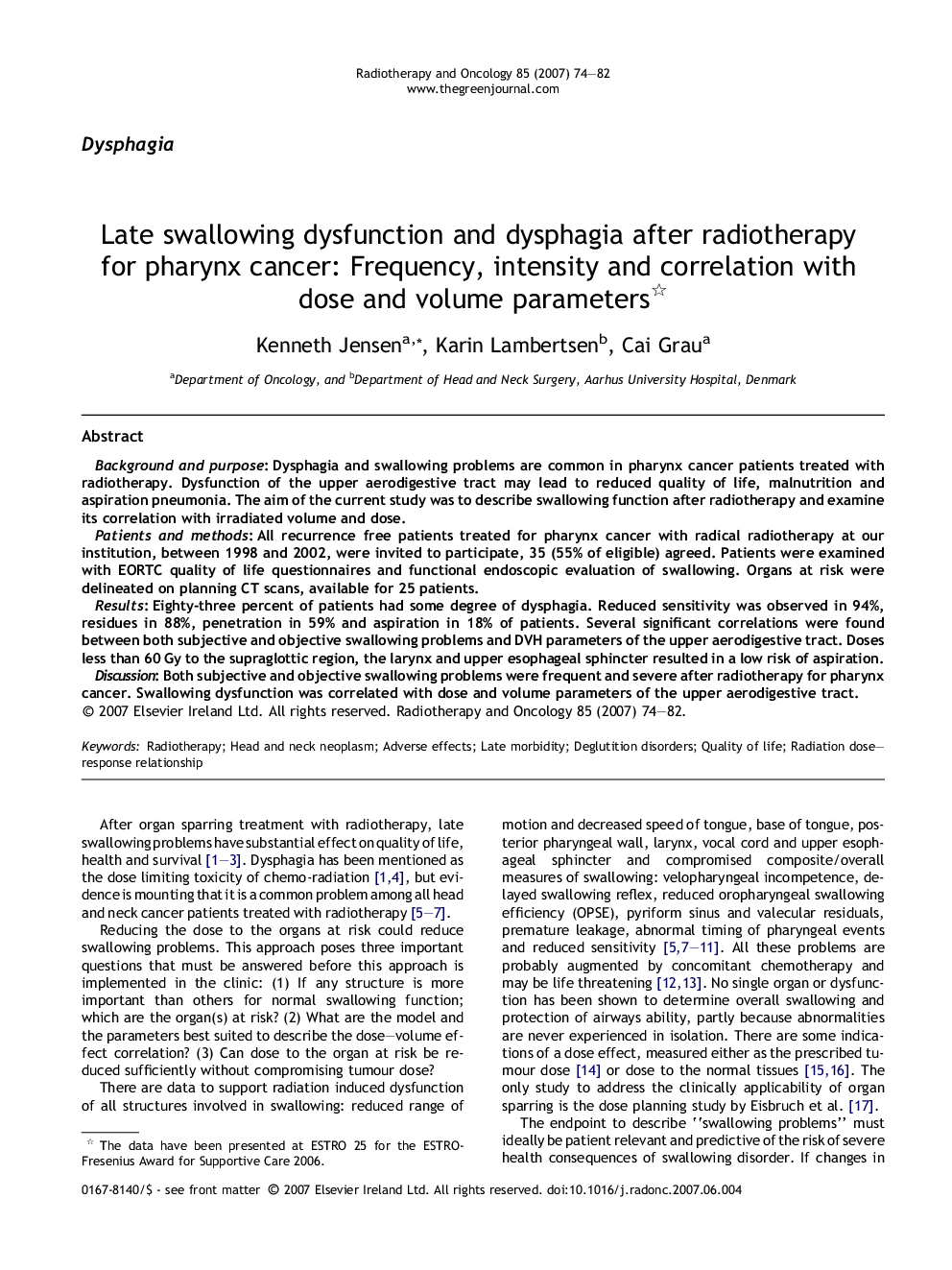| Article ID | Journal | Published Year | Pages | File Type |
|---|---|---|---|---|
| 2160828 | Radiotherapy and Oncology | 2007 | 9 Pages |
Background and purposeDysphagia and swallowing problems are common in pharynx cancer patients treated with radiotherapy. Dysfunction of the upper aerodigestive tract may lead to reduced quality of life, malnutrition and aspiration pneumonia. The aim of the current study was to describe swallowing function after radiotherapy and examine its correlation with irradiated volume and dose.Patients and methodsAll recurrence free patients treated for pharynx cancer with radical radiotherapy at our institution, between 1998 and 2002, were invited to participate, 35 (55% of eligible) agreed. Patients were examined with EORTC quality of life questionnaires and functional endoscopic evaluation of swallowing. Organs at risk were delineated on planning CT scans, available for 25 patients.ResultsEighty-three percent of patients had some degree of dysphagia. Reduced sensitivity was observed in 94%, residues in 88%, penetration in 59% and aspiration in 18% of patients. Several significant correlations were found between both subjective and objective swallowing problems and DVH parameters of the upper aerodigestive tract. Doses less than 60 Gy to the supraglottic region, the larynx and upper esophageal sphincter resulted in a low risk of aspiration.DiscussionBoth subjective and objective swallowing problems were frequent and severe after radiotherapy for pharynx cancer. Swallowing dysfunction was correlated with dose and volume parameters of the upper aerodigestive tract.
